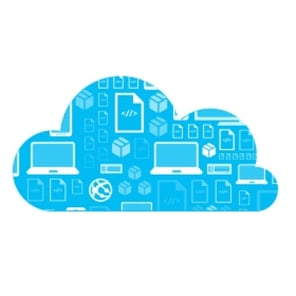
When it comes to cloud-based ERP platforms, four primary software vendors hold market share: Infor, Microsoft, Oracle, and SAP. Which of these industry giants offers the best cloud ERP for business?
Ultimately you’ll have to decide which platform creates the greatest opportunity to streamline workflows and create better opportunities for your specific business. There are many choices when it comes to cloud-ERP software. Of the four that have cornered the market, which one is best for your business?
Best Cloud ERP for Business – The Big Four
Infor
According to Enterprise Apps Today, most of Infor’s deployments are on-site, with around 24% of their total ERP utilization in the cloud. Worldwide, they hold about 16% of overall the cloud-based market. The beauty of Infor’s platform lies in its targeted approach; they picked a few industries and handle them well. If you’re in healthcare or hospitality, manufacturing or retail, their open source approach will work for your business.
Infor partners with AWS to extend their process automation functions. Overall, we find their on-premise product is more robust than the cloud offering, with finance, supply chain and service information-related products. Generally, we recommend a hybrid approach with this vendor in order to reap the most benefit.
Microsoft
If you’ve been reading our blogs, you know that Microsoft Dynamics offers ERP, business intelligence, CRM database and infrastructure processes in one package. Their ability to extend functionality via multiple modules and plug-ins is unparalleled in the cloud ERP market. You can add on scalable industry-specific functions that are virtually limitless because of the vast array of vendor and third party relationships that Microsoft has established. Too, Microsoft’s new pay-as-you-go pricing structure is particularly attractive to small to medium sized businesses.
Oracle
Oracle was traditionally hard-core anti-cloud, but the company famously reversed its position a few years back. So it’s safe to assume they have a little catching up to do. Despite this, they’ve managed to come from behind, capturing about 16% of the market. Oracle now offers financials, supply chain, project management and procurement in the cloud. Importantly, ZD Net points out that Oracle made up for lost time by acquiring existing products, so, “Individuals looking to buy any Oracle solution should run a genealogy search on the products to better understand where the code came from…” While the point is well taken, what small business owner has the time?
SAP
SAP has specifically targeted upper midmarket companies, service providers, and the subsidiaries of enterprise organizations with their SAP Business ByDesign product. The platform has a CRM database, finance, HR, procurement, project management, and supply chain functionality. In terms of the sheer volume of functions, we consider SAP to be a Microsoft competitor. But SAP does not scale well to the small to medium size business. It lacks the pay-as-you-go flexibility of Dynamics. Too, most users say that SAP lacks the intuitive functionality that Microsoft has been known for.
Ultimately, finding the best cloud ERP for business must start with the most basic questions: Why do you need it and how much can you pay? There are at least 15 cloud-based ERP providers in the market and 2017 will likely bring more. For robust scalability, we highly recommend taking a test drive of Microsoft’s ERP. For price and sheer options, it simply cannot be beat. Contact our team today to find out more.



